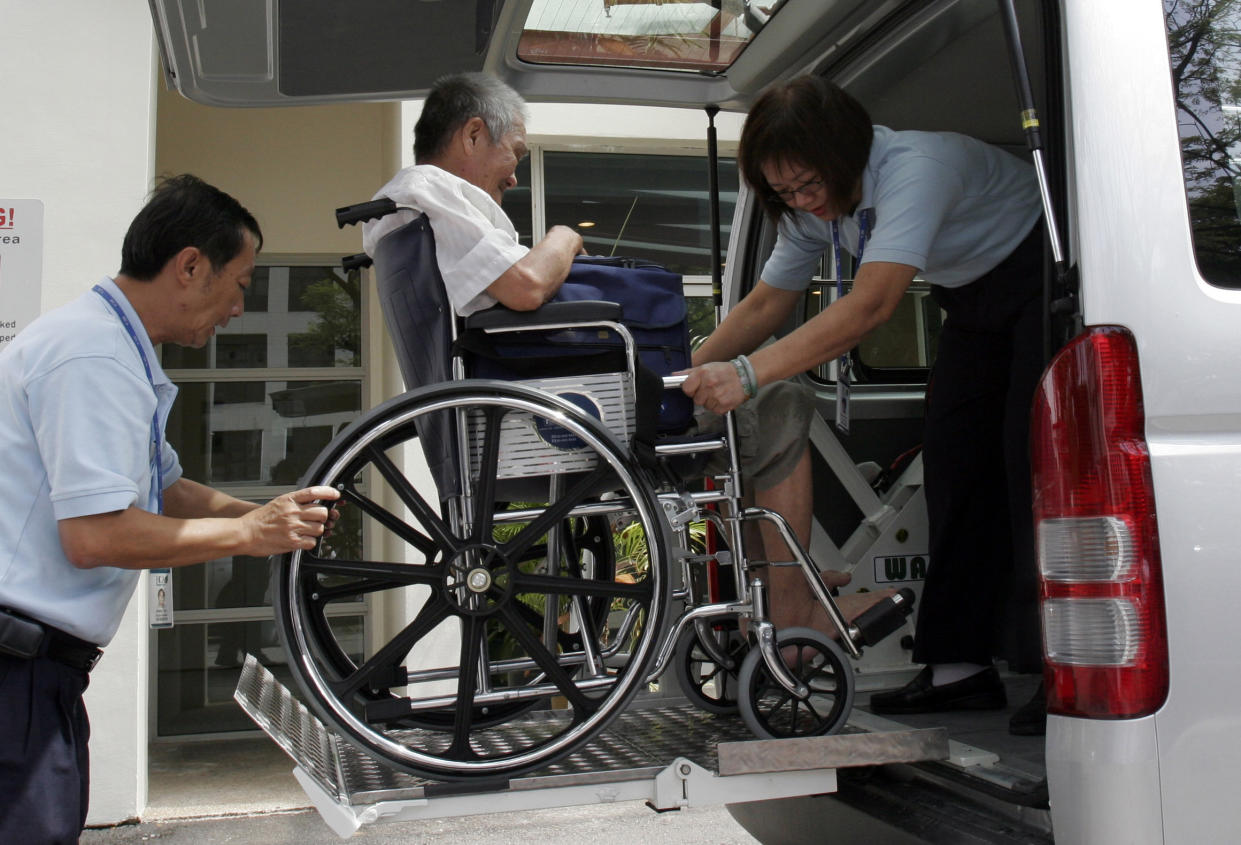Caregivers for the elderly lose $57,000 in income per year: Aware report

SINGAPORE — On average, primary caregivers of elderly parents or relatives lose around 63 per cent of their income, or an estimated $57,000, per year due to changes in their employment, an Association of Women for Action and Research (Aware) study has found.
Citing its latest research report “Make Care Count”, which investigates the financial toll that eldercare takes on family caregivers, the gender-equality group made a series of recommendations on Wednesday (18 September) at its headquarters.
Among others, it urged the government to introduce the right to request for flexible work arrangement and six days of paid eldercare leave, as well as a caregivers’ support grant to improve their retirement adequacy.
The Aware report is based on in-depth interviews with 22 female caregivers and 22 stakeholders, including eldercare service providers, academics and medical social workers.
The caregivers, aged between 45 to 65, are typically unmarried with no children and caring for someone, typically a parent, older than 65. In total, they are currently caring for 24 care recipients.
About 64 per cent said that they experienced a change in their employment status and income due mainly to taking up caregiving responsibilities.
These can range from aiding their charges with the activities of daily living such as eating or dressing, managing their medications and transportation as well as emotional and psychological care, the study noted.
Those taking care of someone who needs help with fewer than three activities of daily living spend an average of $866 a month, or 22 per cent of their average monthly household income, out of their pocket on care-related expenses.
Those taking care of someone who needs help with three or more activities of daily living spend an average of $1,917 a month, or 64 per cent of their average monthly household income, out of their pocket on care-related expenses.
The top three recurring expenses are incurred by employing home-based care services, foreign domestic workers and consumables. The top three one-off expenses include medical bills, equipment and home adjustments.
“Given Singapore's imminent demographic changes, and the growing family caregiving burden that individuals can expect to face, more action in this arena would be very timely,” said Shailey Hingorani, Aware’s head of research and advocacy.
“The filial piety demonstrated by family caregivers is truly something to admire - but we should recognise that devotion alone is not sustainable. It needs to be supported by more concrete assistance from the state.”
The caregivers’ support grant, for instance, could be a mixture of cash and Central Provident Fund (CPF), with the amount dependent on the number of activities of daily living a care recipient requires help with.
A helping hand
One suggestion would be to determine the amount of cash using the salaries of paid care workers as a reference point, and matching the CPF amount to employment contribution rates or savings, the report noted.
Caregivers should also be allowed to convert paid childcare leave to paid family leave.
Another would be to lower the minimum requirement of CareShield Life, to be launched next year, to allow those who need aid with less than three activities of daily living to receive cash payouts, as well as to expand the definition of “disability” to include cognitive impairment and mental health conditions.
The study’s other recommendations include the tighter regulation and licensing of private providers of eldercare services, easier access to care-related information and services and setting up a national registry of family caregivers.
By 2050, 47 per cent of Singapore's total population will be aged 65 years or older, according to projections from the United Nations.
The average Singaporean is also expected to live up to 84.8 years, topping a list of 39 locations, according to The Burden of Disease in Singapore 1990 to 2017 report.
Related stories:
Singaporeans topped world's life expectancy list at 84.8 years: study
Eldercare workers in Singapore paid the lowest among 5 Asia Pacific economies: study
Almost 75% of dementia patients in Singapore experience rejection and loneliness: survey
Accessible inventions: Students honoured for devices that help elderly, disabled



